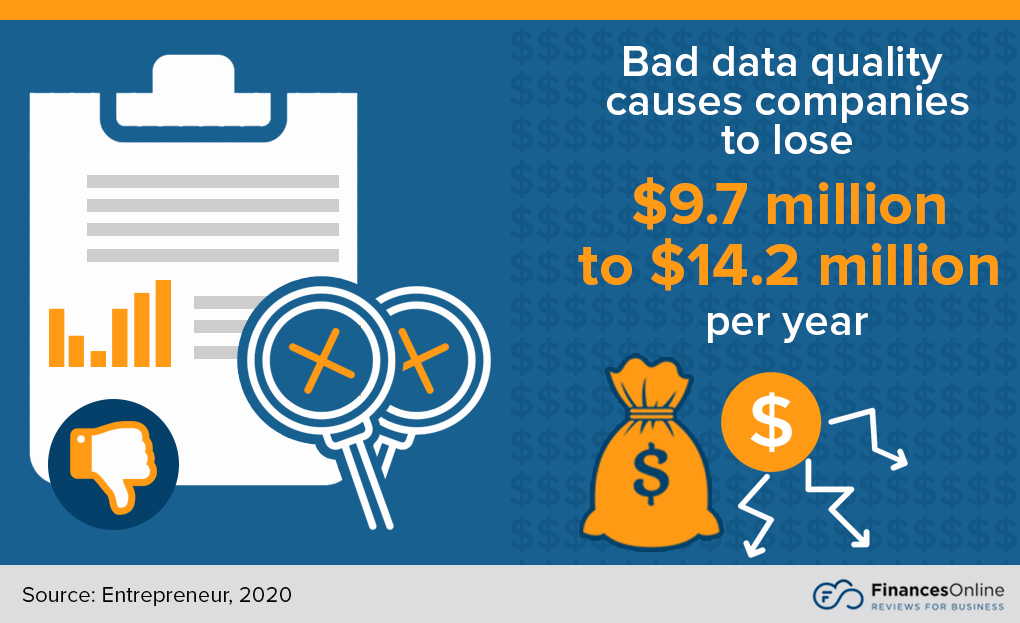Project management is a tedious job accompanied by numerous tasks that project managers need to do right, including project initiation, planning and execution, and control and closure. What makes it even more challenging is when such are delegated to teams who are given a set of goals, a timeline, and a specific budget. To make matters a bit more complicated, project managers need to see to it that everything goes smoothly to ensure a project’s success.
This article points out the skills needed to accomplish the works stated above. These include technical, business, and management capabilities, along with a few soft skills. This fairly short read also mentions some of the tools that are helpful for project managers, as pointed out in this guide to project management software. This way, you can better equip yourself to meet the demands of the project management industry.

Important Skills of Project Managers
Modern project management roles and skills are predicated on volumes of data. Among other things, they have to understand the value of data assets in a world where data could mean anything, from business financial data, customer data, and processes data. Projects move along data inputs, and bad data can cost these projects from the get-go.
In fact, it’s estimated that bad data quality can cost companies around $9.7 million to $14.2 million per year. It underscores the modern roles of project managers amid a sea of data.

On another front, project managers have become crucial assets to organizations and are gaining more focus for skills development. Indeed, 68% of organizations cultivate employees’ leadership skills while 65% develop their personnel’s technical skills. With continual training, project leaders can contribute more to the success of companies.
How does emotional intelligence impact project management success?
Emotional intelligence (EI) plays a pivotal role in project management by enhancing interpersonal dynamics and facilitating better decision-making in complex situations. A project manager with high EI can lead with empathy, resolve conflicts effectively, and foster a supportive team environment that enhances productivity and morale.
- Improved Team Collaboration
Emotionally intelligent project managers can recognize and address team members’ emotions, fostering an open, trusting environment. This strengthens collaboration and encourages open communication, which is crucial for resolving issues and aligning goals. - Effective Conflict Resolution
High EI allows project managers to handle conflicts calmly and constructively. By understanding the emotional triggers of team members and stakeholders, they can mediate disagreements and prevent misunderstandings from escalating, which helps maintain a positive project atmosphere. - Enhanced Decision-Making
EI enables project managers to consider emotional factors in decision-making, helping them evaluate team dynamics and make more holistic decisions that consider both logical and interpersonal aspects. - Adaptability in High-Pressure Situations
Project environments are often high-stress, especially when managing tight deadlines or unforeseen challenges. EI allows managers to remain composed, communicate positively, and guide their teams with resilience, improving overall project outcomes. - Stronger Stakeholder Relationships
Building strong relationships with stakeholders is essential for project buy-in and support. Emotionally intelligent project managers are adept at building rapport and demonstrating empathy, which can lead to more engaged and cooperative stakeholders.
Leadership and technical know-how are not the only skills a project manager needs to be effective, though. We’ll answer the question, “What are the most important skills of a project manager?” to help you improve your project management capabilities and, in effect, achieve your 6-figure income goal. We will also detail some examples of project management software that are currently available in the market.
10 Most Important Project Management Skills to Have
Project managers require a variety of skills to be able to effectively do their jobs and ultimately benefit both their respective organizations and project stakeholders. These capabilities can be gleaned from experience and take years to master. However, they offer great benefits that could significantly contribute to managers’ career development. The following are some of the best project management skills that project managers should possess:
1. Leadership
The issue of project leadership has always been and always will be a focal point among businesses. This is why it is undoubtedly at the top of a project manager’s most important skills. This skill enables project managers to come up with corporate visions and lead teams effectively. Boosting this skill will greatly improve the project managers’ career advancement.
2. Communication
Communication goes hand-in-hand with leadership skills. To be an effective leader, one has to be able to make clear what project teams must do. However, communication is not limited to the project team, it also applies to all stakeholders, including vendors, contractors, and customers. Such can be done through the use of technologies such as reporting tools, chat or file sharing. Such tools facilitate person-to-person and group communication alike.
3. Scheduling Capability
Another one of the project manager’s most important skills is the ability to create project schedules cannot be undermined. However, it has been established that many project managers are lacking in this skill, an area where improvements are greatly needed.
4. Risk Management
The proliferation of unique projects has resulted in project managers becoming more adept at risk management. Unlike common projects, which are often outsourced or assigned to less seasoned project managers, these unique undertakings entail more complicated efforts that only mature project managers are capable of handling. Having this skill is a sign of having control over your project. Besides, it’s an effective way of assuring project sponsors that their investments are in good hands.
5. Negotiating
Project managers who have excellent negotiating skills are likely to resolve conflicts that may arise among project stakeholders. This could lead to the formulation of ideal scenarios that could prove to be amicable to all concerned.
6. Contract Management
The ability to manage contracts is very useful in maintaining relationships with suppliers. As every project involves material supply, such skill really comes in handy for project managers. Managing purchases is basically the cream of contract management. As such functions have previously been handled by finance departments, relegating it to project managers makes the process much simpler.
7. Team Management
Needless to say, most members of project teams need guidance from project managers and the most effective way to do this is by coaching. Having this skill will enable you to make up for employee shortcomings such as inadequate project experience and therefore, need coaching. And besides, coaching has been proven to help students to significantly boost their performance.
8. Cost Management
An essential project management skill, cost management is of critical importance to most businesses. Failure to comply with this need could hurt organizations that run on tight budgets. Project managers who are knowledgeable in this area can deliver projects not only on time but within the budget as well.
9. Critical Thinking
It is a fact that critical thinking is the basis of all sound decisions and corporate decisions are no exception to this rule. Project managers who consider the pros and cons of potential answers to specific problems, practice critical thinking. This skill separates those who are adept at managing issues from those who are not. The development of critical thinking skills require practice and tools that can help you logically structure arguments before coming up with a decision.
10. Task Management
An effective project manager should also be adept at task management. This skill involves the ability to come up with task lists and delegate them while keeping absolute control over the project. To be able to harness this skill, one must learn the process of making lists. Strategies for ensuring that one is constantly on top of such a list should also be developed. This is known to ensure that project completion time is always on time.
One more thing… sense of humor
Although this may sound absurd, this skill is definitely no laughing matter as far as project management is concerned. In fact, a good sense of humor is one of the most important skills that a project manager could possess. Aside from allowing one to see a problem from an alternative point of view, it is effective in relieving both managers’ and teams’ stress. Relieving stress allows key people to focus on generating ideas as opposed to working in a tension-filled environment.
Project Management Trends
As project management reaches new heights, project managers should be abreast of new developments in the field. Having the right skillset and tools does not necessarily denote success, one should likewise be on the lookout for changes in the area of project management. The following highlights the current project management trends that managers should be aware of.
- Business Agile. As more and more organizations adopt the Agile development framework, many have been reaping its benefits to project management. The methodology has proved to be effective in boosting communication, making teams more receptive to change and improving returns on investment. What’s even more appealing is that the use of the framework is known to start from small to mid-size businesses. It caters specifically to younger workers as they have a more flexible work mindset. Another reason for the framework’s popularity is the proliferation of tools that help in its implementation. These tools include artificial intelligence, which automates project management decisions such as in the case of task assignments
- Focus on Project Strategy. As businesses are constantly affected by competition, lack of resources and time and budgetary difficulties, project managers must focus more on reaching corporate goals. This can be done by shifting away from industry-specific information as a way to reach objectives by identifying organizational strengths and weaknesses.
- Leveraging Staff Strength by Shifting Away from Hierarchies. Even as executives commonly influence corporate culture, employee-level concerns can impact corporate culture one way or another. Employee recognition is a sure-fire way of improving the work environment. Managers should seek ways by which to boost employee strengths, which can positively impact the organization.
- Accountability and Social Responsibility. Contrary to popular belief, profitability is not the most crucial thing for a business. There are also aspects of social responsibility and accountability that come with projects. Companies are now under pressure to consider social and environmental factors when executing projects. Besides, doing so can significantly boost the corporate image as both people and businesses prefer to deal with transparent organizations.
- Remote Project Management Tools, Labor, and Security. The need for remote project management tools and labor stemmed from the rise of the mobile workforce. The popularity of such tools has been steadily increasing. With this development comes the need for security policies and processes as ways of safekeeping client data in view of the use of mobile devices. However, the above-mentioned makeup but the tip of the iceberg as project managers have so many more responsibilities.
Examples of Project Management Software
There are a lot of project management systems to choose from out there. These more popular ones are well known to fulfill the purpose of project management software. So to help you get an idea of what you should be looking for in this type of technology, we have listed a few examples of project management solutions below and provided the details of their features, functionalities, and pricing.
1. monday.com

A leading collaboration and communication application designed for project management teams, monday.com syncs all data in a single location and facilitates decision-making for team members and agents alike. It streamlines contributions, boosting teams and departments’ performance. Progress data is assembled and displayed logically and can be understood by all users. The platform likewise ensures that users get to have the needed incentives to help with tasks and assignments, even those not related to their roles. The interface is neat, well-organized and designed for collaboration. Its simplicity eliminates the need for formal user training, letting you use the app upon installation. However, the vendor thought it prudent to compile training materials for those who want them. What’s even better about monday.com is its scheduling feature, which can be used for both task and project management, helping you get rid of paperwork. monday.com is available in a variety of pricing plans starting at $49/month.
You can use all the features for free for a period of time to see if the software matches your needs.
2. Wrike

Online project management software Wrike is designed to speed up projects both in co-located and distributed teams. It is highly flexible, allowing for team collaboration from a single location. Using the software, you can prioritize, schedule, discuss and monitor both work and project progress in real-time, all it takes is but a few clicks. The solution sports a myriad of business collaboration and information management features that are bound to boost your business. Wrike’s easy-to-use navigation feature makes project management easy for both managers and teams. It likewise has top-of-the-line security measures that make sure that only project-relevant individuals have access to vital information. Its mobile applications let you track project progress from your mobile at any given time and place. The software’s three-pane layout enables you to view important data, allowing for a clear view of project operations. It also allows you to work on subtasks or move across different projects. Wrike is sold at a variety of pricing plans starting at $9.80/user per month. If you require only basic functionalities, a free version is available.
You may further inspect the features that this product has to offer if you take advantage of their free trial plan.
3. ConnectWise Manage

This project management solution is designed to provide a core platform for crucial business processes. ConnectWise Manage not only serves as a single source of truth for businesses, but it also helps streamline business operations, allowing you to maximize your resources. Among the business processes that ConnectWise Manage supports are sales and procurement. Billing your clients is also faster and more efficient with the help of automation systems that streamline the billing process from gathering all necessary details to generating invoices.
ConnectWise Manage also provides error-proof ticketing with service dashboards for a faster and more efficient way of tracking and resolving customer issues. In terms of reporting, this cloud-based solution is equipped with robust reporting options to help you make strategic data-driven business decisions.
4. Zoho Projects

Aiming to provide its users with the ultimate project management experience, Zoho Projects is equipped with tools that help project leaders achieve their goals. With features that are both highly customizable and fully-automated, the entire project management process, from initial to closing, is handled more efficiently and effectively. For instance, its milestone mapping tool makes project planning and collaboration between team members smoother and less complicated. Every progress in tasks is also being tracked in real-time so that you can easily gauge your teams’ productivity and take actions to ensure you are operating within your timetable. Zoho Projects offer a free plan for up to five users and four paid packages starting from $150/year. There’s a 10-day trial for each paid plan.
The vendor has an appealing free trial where you can tinker with the features at no cost.
5. Smartsheet

Smartsheet is an industry-leading collaboration tool that caters to your needs for project management, crowdsourcing, and team task management to name a few. It’s a versatile software that is ideal for businesses in the construction, education, retail, technology, manufacturing, and other industries. With its wide range of functionalities, Smartsheet isn’t for project managers alone but is also useful for your personnel in other departments including HR, sales, marketing, and IT. The system also provides transparency into your team’s actions through their activity logs, shared views, detailed history, etc. This improves the accountability of your staff. There are three pricing packages offered by Smartsheet – Individual, Business, and Enterprise. The first two plans are available for $14/user/month and $25/user/month respectively. The Enterprise plan is available by quote.
The vendor offers a comprehensive free trial to get you up to speed with the features.
More Articles for Project Managers to Read
So, there you have it — the most important skills that project managers need to possess to step up their game. If you’re a project manager, you can try to improve on some of these skills as they will work to your advantage. These capabilities will not only benefit your organization but your management career as well.
If you’re interested in learning more about this trade, go check this article discussing the purpose of project management. It also provides some helpful pointers like how to choose the best project management software and how to efficiently roll out a project management system.
Moreover, if you want to learn the figures surrounding this industry, take a look at our project management statistics. This shows the reasons for project failure, how much is spent by companies for each project, the key developments in project management software, and a lot more. With this information at your fingertips, you can stay abreast of what’s new in the industry and remain one step ahead at all times.
Key Insights
- Leadership: Crucial for creating visions and guiding teams effectively, improving career advancement.
- Communication: Essential for clarity among project teams and stakeholders, facilitated by various technologies.
- Scheduling Capability: Vital for creating effective project schedules; an area needing improvement among many project managers.
- Risk Management: Important for handling complex projects and ensuring investor confidence.
- Negotiating: Helps resolve conflicts among stakeholders and create agreeable solutions.
- Contract Management: Useful for maintaining supplier relationships and simplifying the procurement process.
- Team Management: Key for guiding and coaching project teams, improving performance and compensating for experience gaps.
- Cost Management: Critical for delivering projects on time and within budget.
- Critical Thinking: Basis of sound decision-making, separating adept managers from others.
- Task Management: Involves creating and delegating task lists while maintaining control over the project.
- Sense of Humor: Helps relieve stress and create a positive work environment.
- Project Management Trends: Includes adopting Agile frameworks, focusing on project strategy, leveraging staff strengths, and considering social responsibility.
FAQ
- What are the most important skills of a project manager? The most important skills of a project manager include leadership, communication, scheduling capability, risk management, negotiating, contract management, team management, cost management, critical thinking, and task management. Additionally, having a good sense of humor can be beneficial.
- Why is leadership a crucial skill for project managers? Leadership is crucial because it enables project managers to create corporate visions and guide their teams effectively. Strong leadership skills can significantly boost a project manager’s career advancement.
- How does communication impact project management? Effective communication ensures that project teams and all stakeholders, including vendors, contractors, and customers, understand their roles and responsibilities. It is facilitated by various technologies that streamline reporting, chatting, and file sharing.
- Why is scheduling capability important for project managers? Creating effective project schedules is vital for ensuring that projects are completed on time. Many project managers lack this skill, making it an area where improvements are greatly needed.
- What role does risk management play in project management? Risk management is essential for handling complex projects and assuring project sponsors that their investments are in good hands. It involves identifying, assessing, and mitigating risks to ensure project success.
- How do negotiating skills benefit project managers? Excellent negotiating skills help resolve conflicts among project stakeholders, leading to the formulation of ideal scenarios that are agreeable to all concerned parties.
- What is the importance of contract management in project management? Contract management is crucial for maintaining supplier relationships and simplifying the procurement process. It ensures that material supply and purchases are managed effectively.
- How does team management contribute to project success? Effective team management involves guiding and coaching project teams to improve performance and compensate for experience gaps. It helps create a productive and motivated team environment.
- Why is cost management critical for project managers? Cost management is essential for delivering projects within budget constraints. Project managers knowledgeable in cost management can ensure that projects are completed on time and within budget, preventing financial strain on the organization.
- What is the significance of critical thinking in project management? Critical thinking is the basis of sound decision-making. It involves considering the pros and cons of potential solutions to problems, helping project managers make informed and effective decisions.
- How does task management impact project completion? Task management involves creating and delegating task lists while maintaining control over the project. Effective task management ensures that projects are completed on time by keeping track of all tasks and their progress.
- Why is a sense of humor important for project managers? A good sense of humor helps relieve stress and create a positive work environment. It allows managers and teams to focus on generating ideas rather than working in a tension-filled atmosphere.
- What are some current project management trends? Current trends include the adoption of Agile frameworks, focusing on project strategy, leveraging staff strengths, and considering social responsibility and accountability in project execution. These trends help project managers stay ahead in the industry and adapt to changing demands.






























There are a lot of skills that are required of a good project manager and the article does a great job of breaking down some of the more common ones. However, I particularly love that communication made it onto the list of things to look for. After all, the manager isn't going to be able to do their job very well if they can't effectively relay their instructions to the people working under them.
Leave a comment!